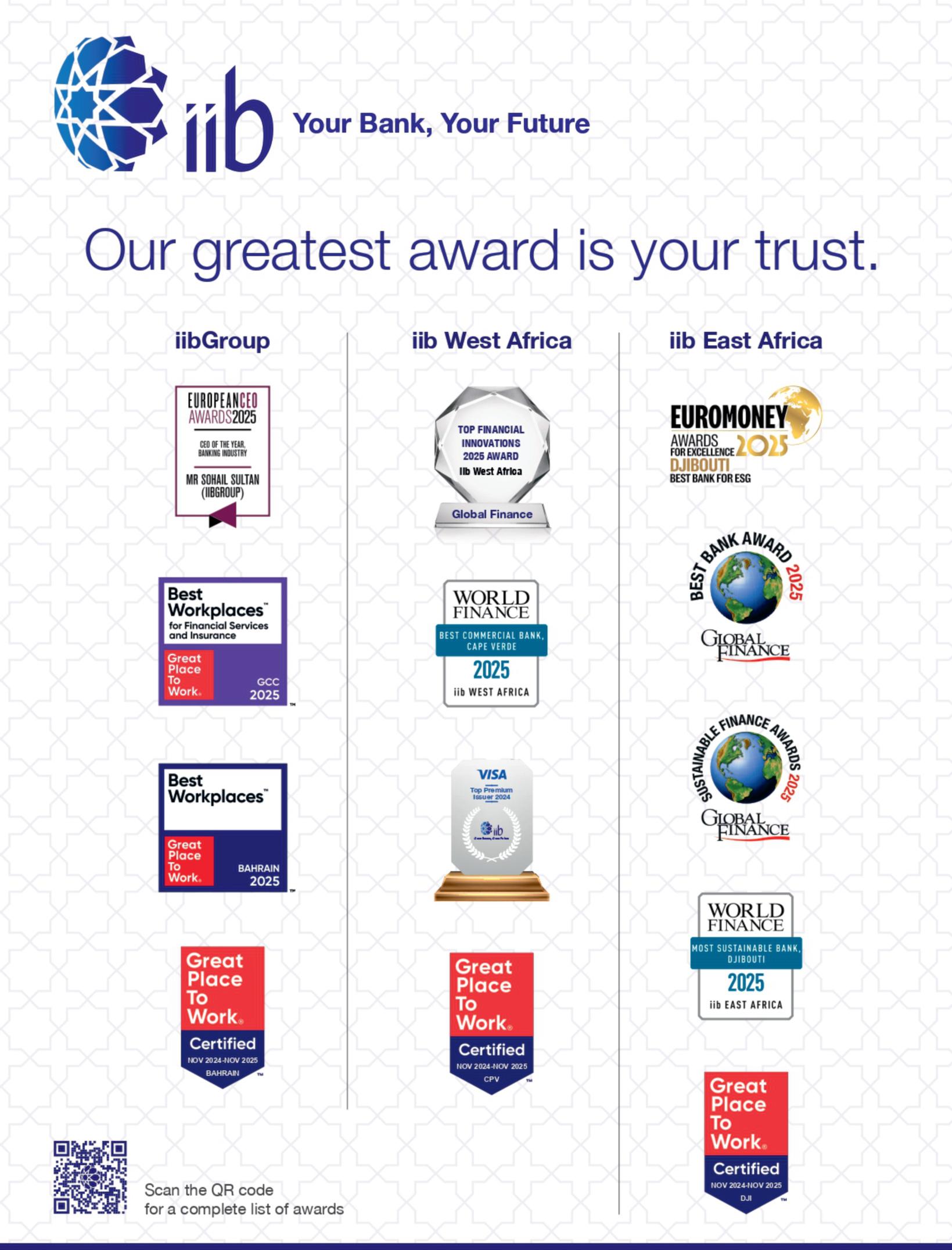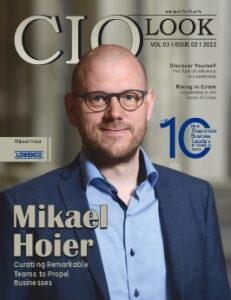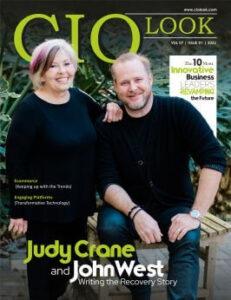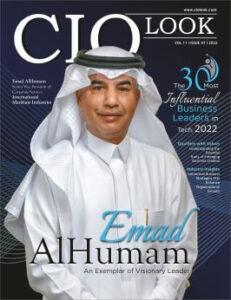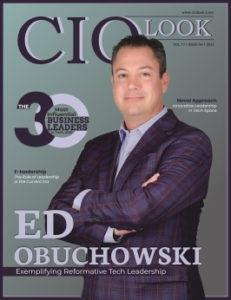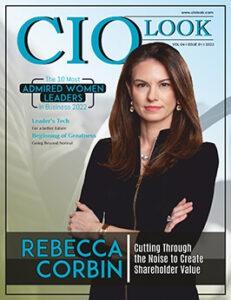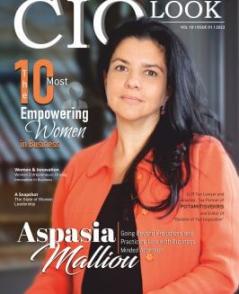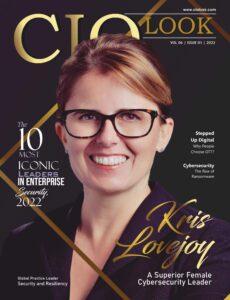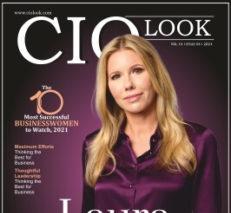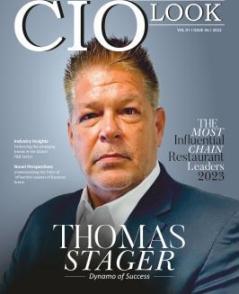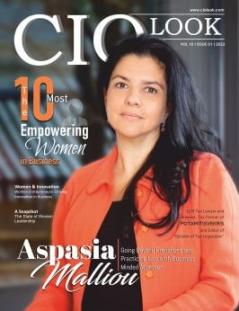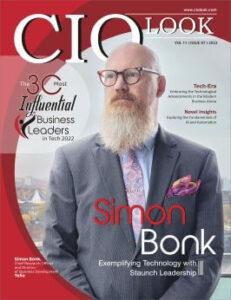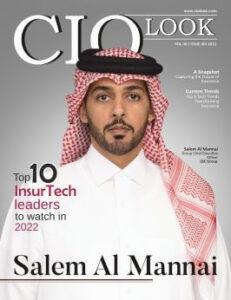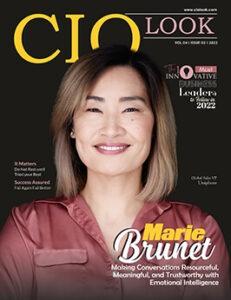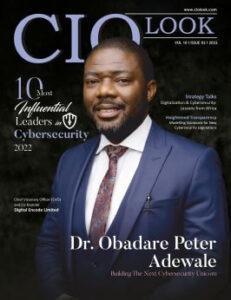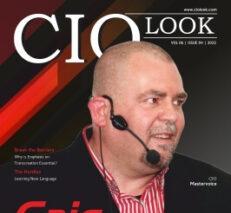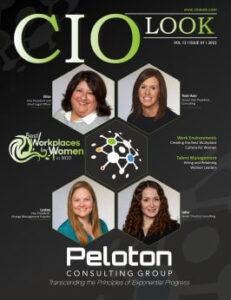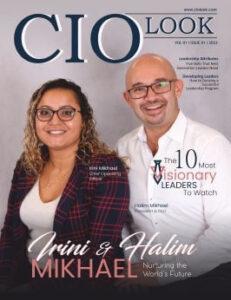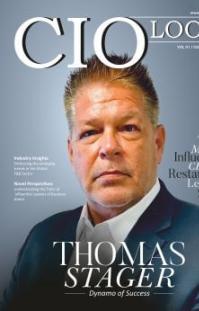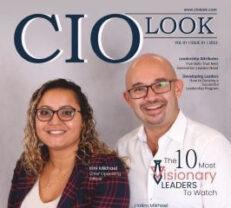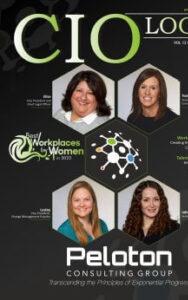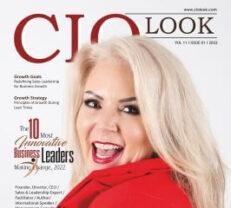

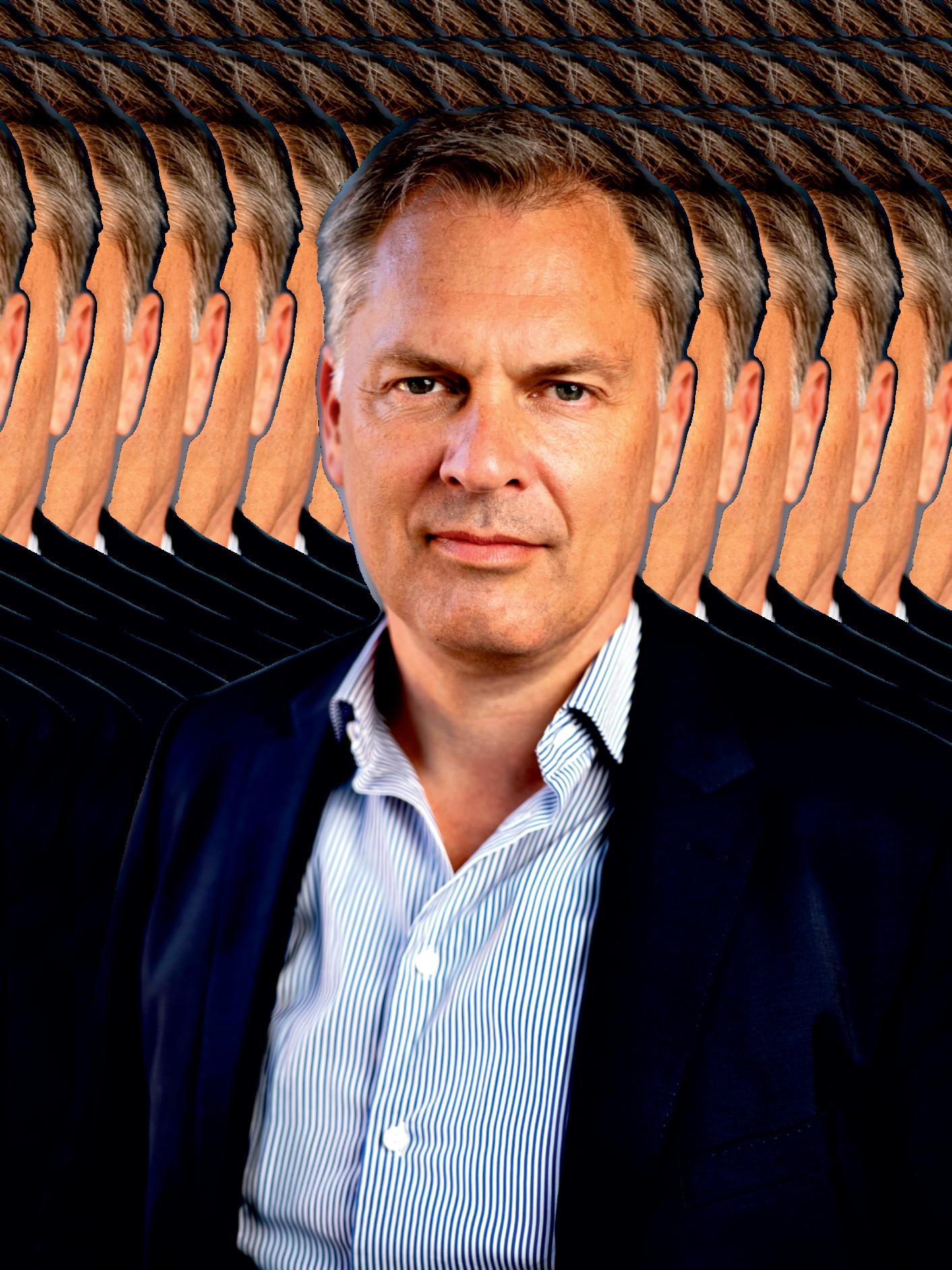

REGISTER NOW
BECAUSE YOUR STORY DESERVES THE SPOTLIGHT









REGISTER NOW
BECAUSE YOUR STORY DESERVES THE SPOTLIGHT




In an era where technological advancement intersects profoundly with human well-being, the healthcare industry stands at the threshold of a revolutionary transformation.Astheworldgrappleswithevolvingmedical challenges, unprecedented patient demands, and the urgent need for accessible, efficient, and personalized care, it is the visionaries in HealthTech who are redefining the future of healthcare.Thisspecialeditionisdedicatedtocelebratingthe remarkable women leaders whose trailblazing innovations are reshaping the industry and setting new benchmarks for excellence.
These leaders exemplify a rare combination of technical expertise, strategic foresight, and compassionate leadership. With unwavering dedication, they are disrupting traditional healthcare models by integrating cutting-edge technologies suchasartificialintelligence,bigdataanalytics,telemedicine, wearabledevices,andblockchainsolutions.Theirworkgoes far beyond innovation for the sake of progress — it is a purposeful commitment to improving patient outcomes, enhancinghealthcareaccessibility,andensuringsustainable, value-drivencaredelivery.
At a time when the global healthcare ecosystem faces immense pressure—from rising chronic diseases and aging populationstotherapiddemandforreal-timedataandremote care solutions these trailblazers stand as beacons of transformative change They are not only advancing technology but are also fostering a culture of collaboration
between medical professionals, tech experts, and policymakers, driving an ecosystem where innovation is seamlesslyalignedwithpatient-centriccare.
This feature brings to light the inspiring journeys, strategic visions, and groundbreaking contributions of these extraordinary leaders. Their stories reflect resilience in the faceofchallenges,adeepunderstandingofmarketdynamics, andanunwaveringcommitmenttobridgingthegapbetween technology and humanity Each profile demonstrates how purposeful leadership in HealthTech is catalyzing change at the intersection of medicine and technology, ultimately empowering patients and transforming global healthcare systems.
Aswespotlighttheseinfluentialfigures,wealsoacknowledge the broader implications of their work—challenging norms, breaking barriers, and advancing equitable healthcare solutionsforthefuture.Theirrelentlesspursuitofinnovation, combinedwithahuman-centeredapproach,iscreatingamore connected,efficient,andintelligenthealthcarelandscape.
It is our privilege to present this tribute to these remarkable women who are not only leading the charge in HealthTech innovation but are inspiring generations to come. Their contributions serve as a testament to the power of visionary leadershipinshapingahealthier,moreinclusiveworld.

Managing Editor
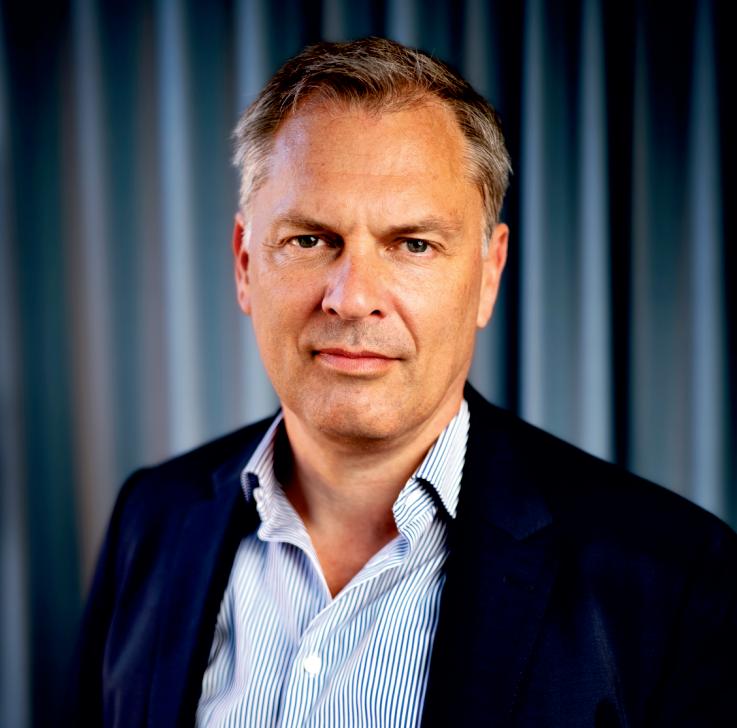
THE FRONT PAGE EXCLUSIVE
Robert Lauritzen
Bringing Automation to MRI for Faster, Smarter, More Accessible Care
From Systems to Solutions
The Digital Health Innovation Revolution
Predictive by Design
The Future of AI in Healthcare Systems
Pooja M Bansal Editor-in-Chief
Deputy Editor Anish Miller
Managing Editor Prince Bolton

FOLLOWUSON WE ARE ALSO AVAILABLE ON
www facebook.com/ciolook/ www.x.com/ciolookmagazine
DESIGN
Visualizer Dave Bates
Art & Design Director Davis Mar�n
Associate Designer Jameson Carl
Senior Sales Manager Fa�ma A.
Manager- Media Partnerships Amira A
Customer Success Manager Nelson M. Sales Execu�ves Tim, Smith
TECHNICAL
Technical Head Peter Hayden
Technical Consultant Victor Collins
Email info@ciolook com For Subscrip�on www.ciolookmedia.com CONTACTUSON
Copyright © 2025 CIOLOOK, All rights reserved. The content and images used in this magazine should not be reproduced or transmi�ed in any form or by any means, electronic, mechanical, photocopying, recording or otherwise, without prior permission from CIOLOOK. Reprint rights remain solely with CIOLOOK.
Research Analyst Eric Smith
SEO Execu�ve Alen Spencer
Featured
LakshmiAnantharamu
Founder&CEO
RajToleti
Founder&CEO
AkilaLabs akila.ai
AndorHealth andorhealth.com
RobertGelb Founder&CEO
Valenehealth valenehealth.com
RobertLauritzen CEO
SamsonMagid Co-founder&CEO
Cerebriu cerebriu.com
HealthSnap healthsnap.com
Hervisionaryleadershipcombinesapassionforsolving complexchallengeswithinnovativesolutions,drivingthe developmentofAI-poweredplatformsthattransformdata intoactionableinsights.
RajleadsAndorHealth’smissiontoempowerhealthcare providerswithtoolsthatenhancepatientcare,streamline clinicalworkflows,andimproveoperationalefficiency
Knownforhisvisionaryleadershipandcommitmentto healthcareinnovation,Robertdrivesthedevelopmentof toolsthathelphealthcaresystemsnavigatethe complexitiesofmoderncaredelivery,enhancepatient engagement,andoptimizeclinicalworkflows.
Robert’sleadershipvisionhasalwaysbeenlong-term, mission-driven,androotedinhumanimpact.Thatmeans buildingforscale,designingwithempathy,andattracting peoplewhothinkindecades,notquarters.
SamsondrivesHealthSnap’smissiontoempowerhealthcare providerswithreal-timedataandactionableinsights, improvingpatientoutcomesandreducinghealthcarecosts.
Myjourneyintohealthtechhas alwaysbeenanchoredina conviction:thesmartestwayto predictthefutureistobuildit.
RobertLauritzen ChiefExecutiveOfficer(CEO) Cerebriu
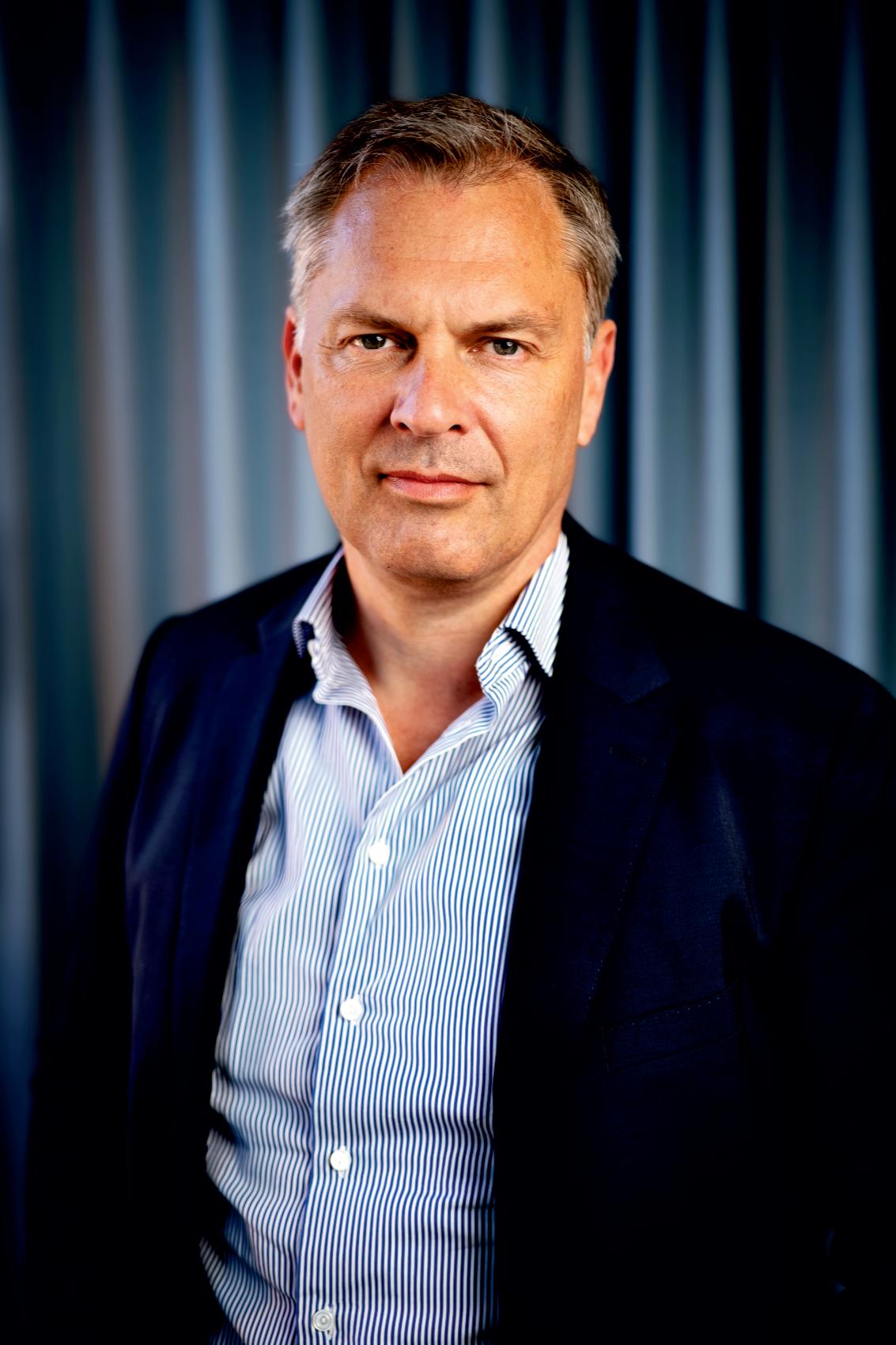
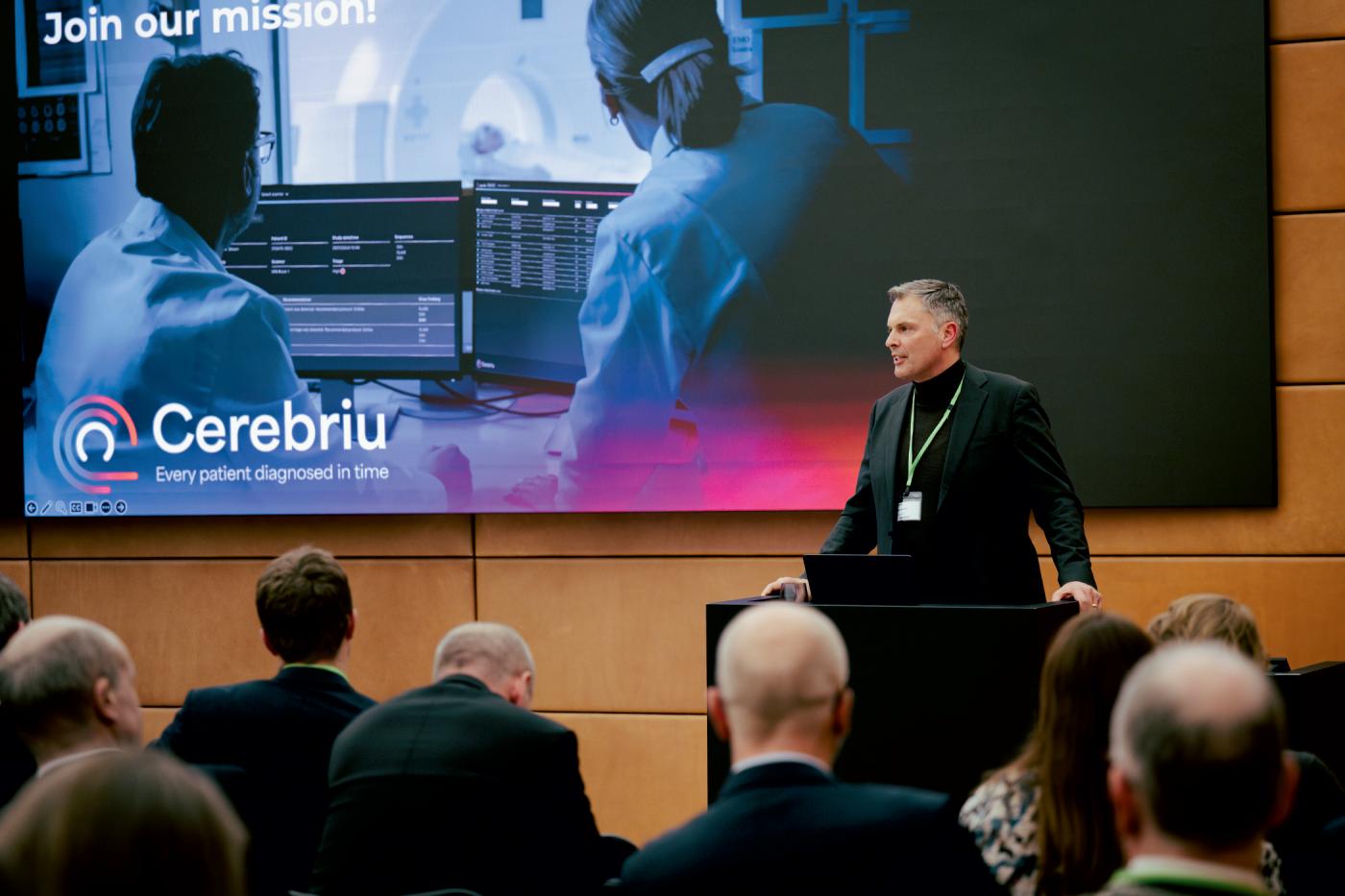

True innovation solves problems in real time. Healthcare has always been in need of such innovations. Although technological advancements automation, robotic detection, and advanced diagnosis with smart technologies—have brought about much-needed change, some of the biggest issues, such as universal instantaneousaccesstodiagnostichealthcare,remain.
Creatinghealthcaresolutionstodayisessentialifwewishto usher in a healthier future that transforms tomorrow for the better Robert Lauritzen’s journey into Healthtech has always been anchored in a similar conviction: the smartest waytopredictthefutureistobuildit
Over the last 30 years, he’s operated at the intersection of technology and medicine — from building mobile dental units to leading global tech operations at Ferring Pharmaceuticals and NNIT. But is where his Cerebriu generationalambitionconvergedwithamissionheconsiders ethicallynon-negotiable:
Making Diagnostic Healthcare Universally Accessible ThroughAutomation
In his own words, what inspired Robert wasn’t just the promise ofAI — it was the urgency of the need. Billions of peoplestilllackaccesstoanMRI.Inmanyregions,scanners maybeavailable,buttrainedradiologistsortechnologistsare painfully scarce.That’s not a staffing gap — it’s a structural one.Addressingitrequiresmorethanefficiency Itcallsfora newparadigm.
Robert’s leadership vision has always been long-term, mission-driven, and rooted in human impact. That means building for scale, designing with empathy, and attracting peoplewhothinkindecades,notquarters.
LeadershipCompassofCorePrinciples
Moreover,threecoreprincipleshaveanchoredhisleadership duringtimesofrapidchangeanduncertaintylikeacompass:
First: clarity of mission.AtCerebriu,Robertandhisteam’s missionistoexpandMRIaccessibilitythroughAutonomous MRI.Thatclarityhelpsthemnavigateregulatorycomplexity, fast-evolvingmarketdynamics,anddeep-techinnovation.
Second: pragmatic optimism They are ambitious in their visionbutdisciplinedintheirexecution.“Wevalidate,iterate, and collaborate with healthcare systems in a way that earns enduringtrust—notfleetingattention.”
Third: values-based execution Inchaotictimes,cultureisn’t just a “nice-to-have” — it’s the operating system. Robert leads with transparency, high standards, and respect for the mission they serve. That consistency enables them to grow withintegrity,evenasthehealthcarelandscapeshiftsbeneath them.
Tech-EnabledEquilibriumofPatient-centricCare
Also, striking the balance between technological advancement and patient-centric care is crucial Robert believesthatthemostsophisticatedtechnologyintheworldis irrelevant if it doesn’t lead to better patient outcomes. At Cerebriu, they build with one principle in mind: AI must improvecareatthepointofneed.
“That’swhyourclinicalautomationsolutionsaredesignedto operatedirectlywithinreal-worldcareenvironments—notin aresearchvacuum.”
TheyembedtheirAIdirectlyintoMRIworkflowsatthepoint of care, so that technologists, radiologists, and most importantly,patientsexperiencethebenefitinrealtime.
Theydon’tjustmakescansfaster—theymakethemsmarter Theyenablefirst-time-rightimaging,optimizecontrastagent use, and accelerate triage for critical cases. The technology helps ensure that the right scan is delivered, prioritized, and interpreted swiftly reducing unnecessary procedures, recalls, and delays for the patient. When done right, technologydisappears. What remains is care that feels more human—notless.
Cerebriuiswheremygenerationalambitionconvergedwitha missionIconsiderethicallynon-negotiable:makingdiagnostic healthcareuniversallyaccessiblethroughautomation.
Despite operating at the cutting edge ofAI and automation, Robertremainsdeeplygroundedinthehumanimpactofthe technologyhehelpsbuild.Forhim,theclinicaldataisnever abstract; ‘ every scan is personal ’ He emphasizes that “Behind each image is a human story — a patient waiting for a diagnosis, a clinician racing against time.”This profound awareness isn’t a theoretical concept for him; it’s an operationalimperative.
To maintain this vital connection, Robert actively seeks out real-worldengagement.Hemakesitapointto‘spend time in MRI suites, not just boardrooms.’He has personally ‘stood insidebusyradiologydepartmentsandseenthestrainoncare teams,’observingfirsthandhoweven‘ afewminutessavedon ascancanripplethroughanentirecarepathway.’
Thisdirectproximitytothechallengesfacedbycliniciansand theanxietiesexperiencedbypatientsensuresthatCerebriu’s innovations are always aligned with genuine human needs. The company regularly engages with frontline users, incorporating their insights directly into product development.ForRobert,“Thisproximitykeepsusgrounded. Cerebriu isn’t about software — it’s about enabling better decisionswhentheymattermost.”
One of Cerebriu’s most significant breakthroughs, and a projectofimmenseprideforRobert,isthedevelopmentand deployment of Apollo. Apollo is not a single tool, but a platform of real-time workflow capabilities from Smart Protocol to Smart Reading, now also powering stroke triage andbeyond.
This real-time AI solution assesses MRI scans as they are being acquired, dynamically optimizing both acquisition parameters and triage prioritization on the spot Robert illustratesitscriticalreal-worldimpactwithavividscenario: “Imagine a scenario in an emergency neurology workflow where a subtle brain infarction could be missed in the middle of the night. Apollo flags it in real time, alerting the radiologisttoreprioritizethecaseimmediately.”
The implications of such immediate intervention are profound. “In situations like this, timely intervention could drastically improve outcomes potentially preventing permanent disability, ” he notes This isn’t a theoretical application; “This isn’t hypothetical — it’s the kind of realworld, frontline impact we are enabling.” With Cerebriu’s Stroke Suite now entering pre-market trials, the company is
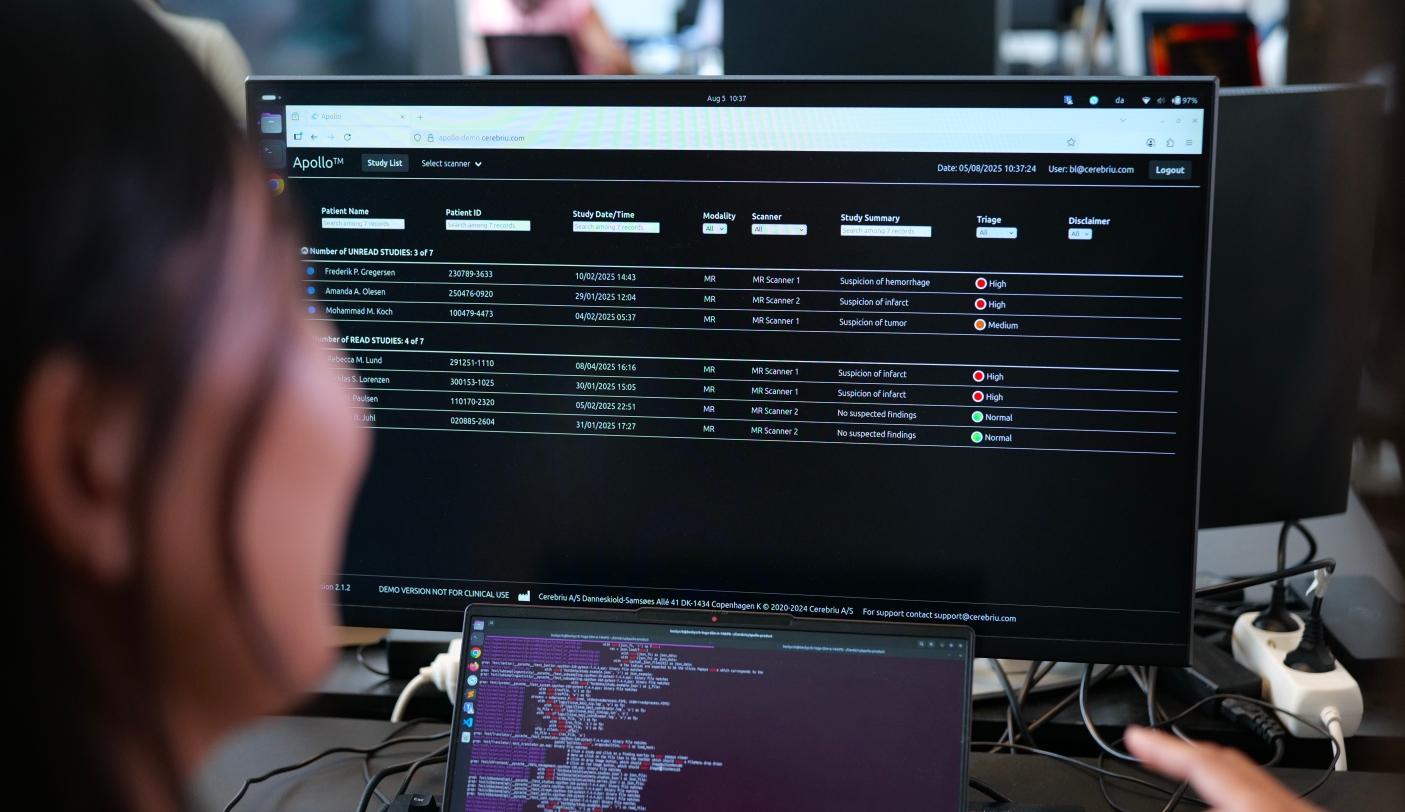
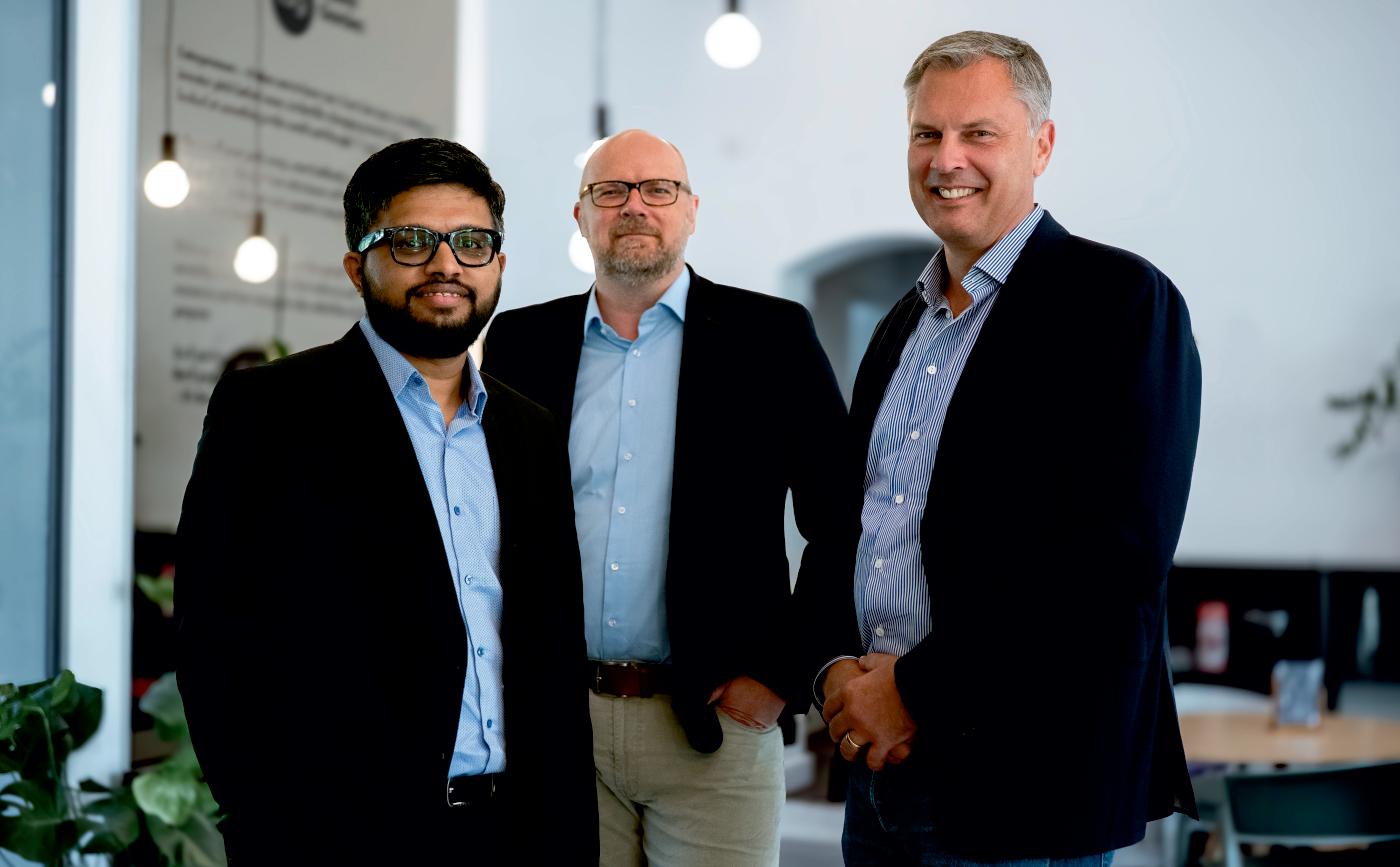
demonstrating how MRI, traditionally seen as a diagnostic bottleneck,canevolveintoacrucialfrontlinetool,especially in time-sensitive conditions where, as Robert emphasizes, ‘time is brain. ’ This innovation epitomizes Cerebriu’s mission to transform diagnostic imaging into a more responsive,intelligent,andultimately,life-savingprocess.
Robert has meticulously cultivated a company culture at Cerebriuthatactivelyencouragesboldideas,calculatedrisktaking, and seamless cross-functional collaboration. He asserts, “Culture is our engine.”This engine is powered by fivecorevalues:“mission-driveninnovation,pioneeringwith purpose, unyielding optimism, dreaming big, and operating asachampionshipteam.”
Cerebriu’s hiring philosophy is deeply aligned with these values. They seek individuals ‘who are driven to make a difference — not just grow a career.’Thismeansfosteringan environment where embracing discomfort, giving and receivingcandidfeedback,andmaintainingarelentlessfocus
Themostsophisticated technologyintheworldis irrelevantifitdoesn’tleadto betterpatientoutcomes.At Cerebriu,webuildwithone principleinmind:AImust improvecareatthepointof need.
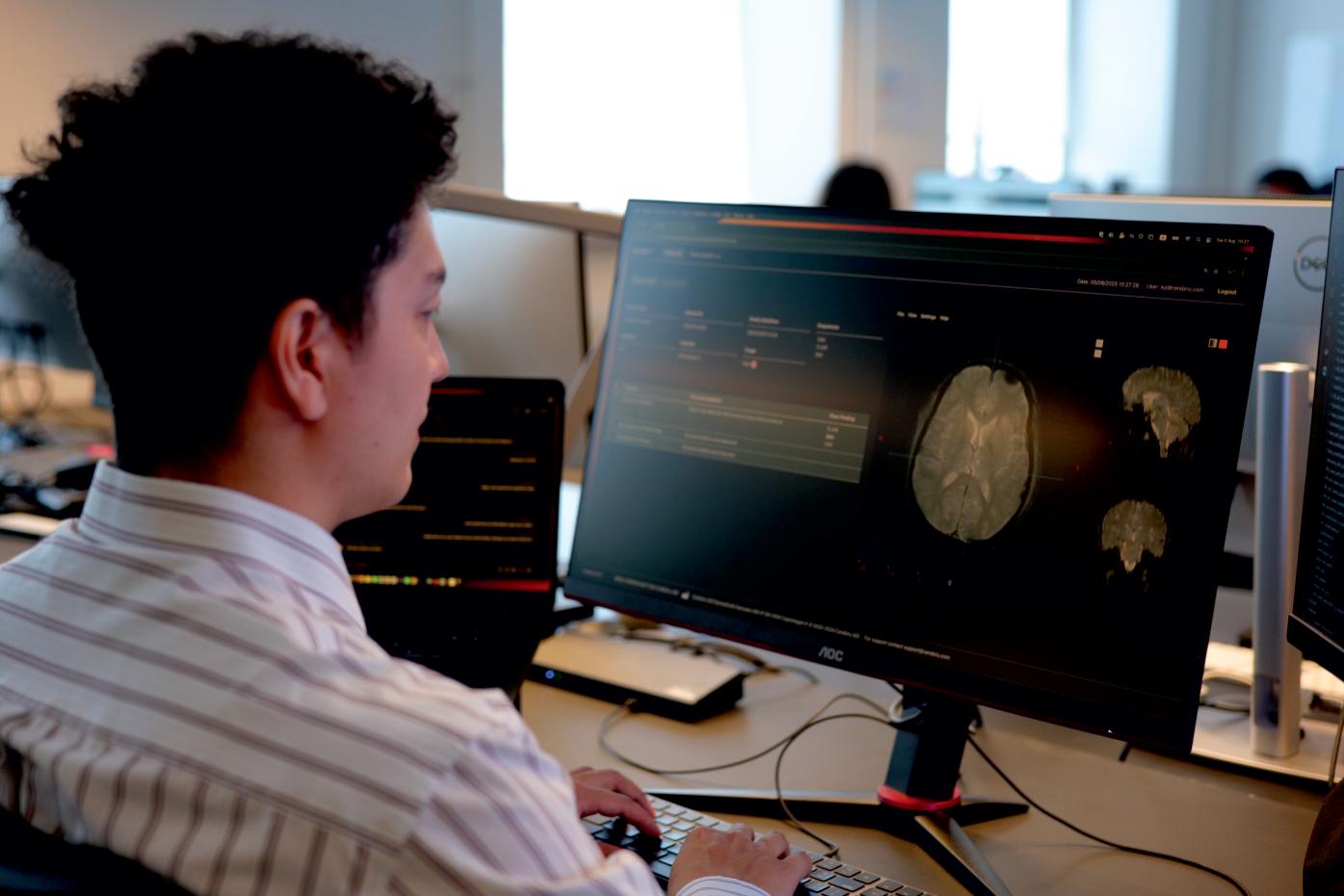
Oneofourproudest breakthroughsisthe developmentanddeploymentof Apollo,ourreal-timeAIsolution thatassessesMRIscansas they’rebeingacquiredand optimizesbothacquisitionand triageonthespot.
onimpactareparforthecourse.Theorganizationalstructure is intentionally lean, allowing for rapid decision-making. Crucially,everyfunction,‘fromengineeringtoclinical—has a voice,’ ensuring diverse perspectives contribute to solutions. Robert emphasizes that “Collaboration isn’t a process — it’s a mindset.” When individuals are aligned around a mission as urgent as Cerebriu’s, ‘collaboration becomesinstinctive,’naturallydrivingcollectivesuccess.
Leadership Humility: The Foundation of Trust in Healthcare
In the sensitive and high-stakes environment of healthcare, Robert firmly believes that ‘humility isn’t optional — it’s essential.’AsaCEO,herecognizestheprofoundexpertiseof clinical professionals and never presumes to possess their specializedknowledge.“I am not a clinician, and I will never pretend to know more than those on the frontlines,”hestates unequivocally His role,instead,isclearlydefined:“My role asCEOistolisten,learn,andenable.”
ThishumbleapproachformsthebedrockofCerebriu’smost successful partnerships, particularly within radiology.These collaborations are ‘built on mutual respect and shared purpose ’ The firm actively “co-develops solutions with clinicians,iteratesbasedonrealfeedback,andacknowledges when we’re wrong.”Thiscommitmenttogenuinepartnership andaccountabilityearnscrucialcredibilityovertime.
Robert views his leadership responsibility as creating an environmentwhere‘truthcansurface—especiallywhenit’s uncomfortable ’ It is through this transparency and willingnesstoconfrontchallengeshead-onthat‘trustisbuilt, and how innovation takes root,’ultimately leading to more effectiveandimpactfulhealthcaresolutions.
Prioritizing Impact: Ethical, Safe, and Scalable TechnologyAdoption
Robert Lauritzen’s approach to prioritizing technology adoption at Cerebriu is guided by a clear ‘North Star: impact.’Thecompanyprioritizestechnologiesthatgenuinely ‘movetheneedleinrealclinicalworkflows—notjustthose with theoretical promise.’ Every innovation undergoes a rigorousevaluationthroughthreecriticalfilters:
First, clinical relevance: “Does it solve a real problem for patients or clinicians?”Thisensuresthattechnologydirectly addressesunmetneedsinhealthcare.
Second,regulatoryfeasibility:“Can we build it in a way that is safe and approvable?”Thisunderscorestheircommitment tostringentsafetystandardsandcompliancewithhealthcare regulations.
Third, scalable integration: “Can it work across geographies, scanner types, and clinical workflows?” This ensures that solutions are broadly applicable and can truly expandaccess.
Robert emphasizes that Cerebriu does not ‘chase hype.’ Instead,theyfocusonbuildingAIthatisrobustandreliable. “Wedon’tjustbuildAIthatdetectspatterns—webuildAIthat integrates into MRI scanner software, meets global safety standards,andisauditableacrossdiversepopulations.”
Ethics are foundational to their work, seen not as an add-on butasaninherentresponsibility.“Weinvestheavilyinclinical validation, real-world testing, and demographic fairness. BecauseAIinhealthcareisn’tagadget—it’sresponsibilityat scale.”
This comprehensive approach ensures that Cerebriu’s technologicaladvancementsarenotonlyinnovativebutalso ethicallysound,safe,andwidelyimpactful.
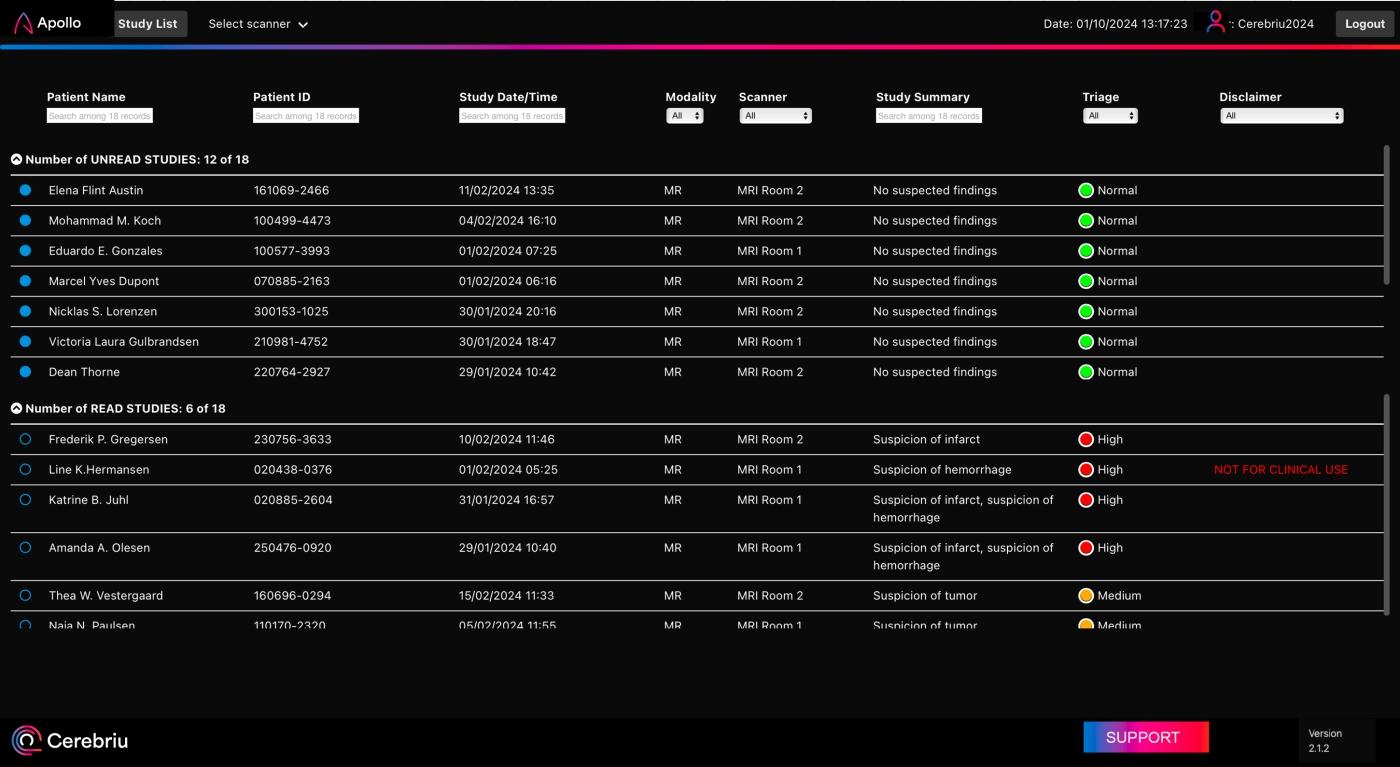

Inamission-drivenfieldlikehealthtech,maintainingasense ofpurposeandavoidingburnoutiscrucial.RobertLauritzen recharges by intentionally ‘zooming out.’ This involves activities like “hiking, reading across disciplines, or reflectingon our long-term vision.”Heconsistentlyreturnsto thefundamental‘why’behindCerebriu’smission,reminding himselfoftheprofoundimpacttheystrivetoachieve.
Whileit’seasytogetconsumedbyshort-termobjectivesand metrics, Robert finds his deepest fuel in the broader vision. “What fuels me is the sense that we’re building something bigger than a product — we’re building a platform for generational change. Something that can shape the future of healthcare long after we ’ re gone ” He views this as a ‘humbling,yetenergizingresponsibility.’
More than anything, Robert finds his purpose in the people around him. “The Cerebriu team, our partners, our users — theyremindmeeverydaythatleadershipisaboutservice,not status.”Thisprofoundconnectiontothehumanelement,both in the patients they serve and the team he leads, continually inspireshimtodriveforwardCerebriu’smissionofuniversal diagnostichealthcare.
Robert Lauritzen’s long-term vision for healthcare transformation is nothing short of revolutionary: ‘ a world where every patient is diagnosed in time — no delays due to geography, cost, or capacity.’ He envisions a future where MRI technology is ubiquitous and AI has democratized accesstoprecisiondiagnostics,fundamentallychanginghow
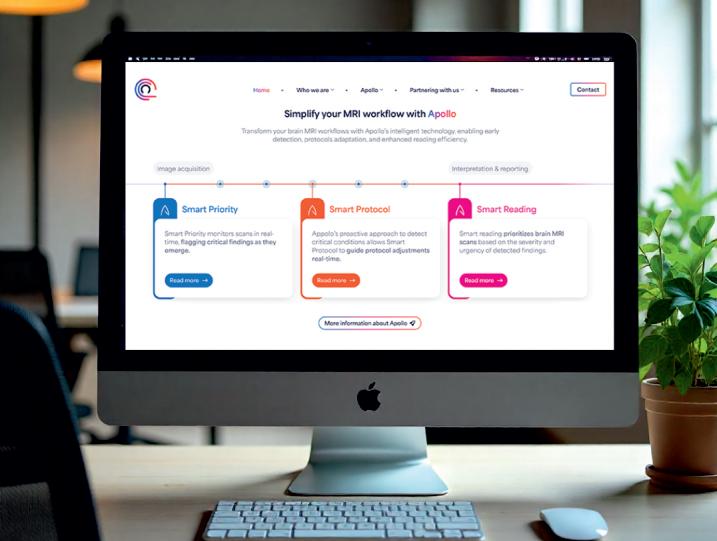
AtCerebriu,ourmissionisto expandMRIaccessibility throughAutonomousMRI.
healthcare is delivered. In this future,AI doesn’t replace the invaluable expertise of radiologists but rather ‘amplifies their reach,’ enabling them to serve more patients with greaterefficiencyandaccuracy
AttheheartofthistransformativevisionisCerebriu’spursuit ofAutonomousMRI—afullyAI-drivendiagnosticworkflow designedtoscaleindependentlyoflimitedhumanresources. Ifsuccessful,thisgroundbreakinginitiative‘willunlocka10x increase in MRI accessibility globally, transforming populationhealthatanunprecedentedscale.’
ThelegacyRoberthopestoleavebehindisequallyambitious and deeply personal: “This transformation is a business imperative. Cerebriu’s independent growth strategy is designedtoscaleglobally,sustainably,ensuringoursolutions serve both emerging markets and mature systems alike. We dare to build the future of healthcare, not just imagine it. And we do it with integrity, courage, and humanity—with an ambitionworthyofthepeopleweserve.”
Thispowerfulstatementencapsulateshiscommitmenttonot only technological innovation but also to the ethical and human-centeredapplicationofAItocreateahealthier,more equitableworldforgenerationstocome.
Knowmore:www.cerebriu.com


Asilent revolution is transforming care delivery, access, and experiences in the constantly changing healthcare environment This change is not happening through conventional bodies or stagnant infrastructure, but through an overwhelming array of old systems and new, dynamic, and adaptive solutions. Digital health innovation is at the core of this revolution, and it is transformingthefutureofglobalhealthcarelandscape.
Traditionally, healthcare systems have been constructs that were institution-based and process-based (i.e., slow and cumbersome)andpronetochangeonlyveryslowly Although essentialintheirera,thesesystemswerenotcreatedtokeep up with new challenges and patient demands. They emphasizedproceduresovercustomizationandeffectiveness overinteraction.
However, with the emergence of digital health innovation, that paradigm has been disrupted, and a more agile, responsive,anduser-centeredapproachtocarehasemerged.
Thistechnologicalchangeredefineshealthcaredeliveryatthe base and abandons the notion that care can be limited to physical locations and face-to-face communication. As technology has increasingly integrated, solutions are now more personalized than system oriented. The revolution is showingitselfinremotemonitoring,teleconsultations,digital diagnostics,andAI-enabledcarecoordination,justtonamea few
The leaders of HealthTech are becoming central to the development of this new ecosystem They are also empowering individualized care trajectories, real-time decision-making,andbetteroutcomesbasedonmoreprecise andtimelyinformationbyprioritizingsolutionsoversystems.
They are not in the business of tools, but they are in the businessofmakingthingshappen.Theyareclosingthedivide between the clinical world and ordinary life, ensuring that healthcare is not simply a service we request but something thatflowswithinourdailylife.
Among the greatest things about this transformation is the individual empowerment. Patients have become active contributorsandnotpassivereceiversofcare.Withthehelpof digital platforms, they can effortlessly access their health records, track symptoms, control medications, and communicate with professionals in a manner never before achievable. This medical democratization leads to more responsibility, a higher quality of decisions, and a more profoundsenseofagencyoverone’sownhealth.
Moreover, digital health innovation is removing the old barriersthatareservingasanobstacletoaccessinghealthcare. Mobility,socioeconomicandgeographyconstraintsarebeing overcome with cloud-based, mobile-first and scalable platforms. The formerly neglected by the old order are receivingnewavenuesofcare,education,andsupport.These online bridges are sealing decades-old disparities of equity andaccess.
Thedevelopmentofsystemsintosolutionsalsointroducesa different way of thinking among providers. It promotes flexibility,teamwork,andlifetimelearning.Insteadofbeing institutional,healthprofessionalsareemployedmoreoftenin interdisciplinary teams, with the support of digital tools to complementandnoteliminatetheexpertise.Humanempathy and technological accuracy are on a collision course that is formingamoreholistic,responsivemodelofcare.
HealthTech leaders see beyond short term solutions or incremental steps. Instead, they are making investments in scalable models, long-term sustainability, and flexibility in thefaceoffuturechallenges.Theirabilitytoseethefutureand apply new technologies, as well as their ability to navigate regulatory landscapes, makes them be the owners of a healthierfuture.
Thedifferencebetweenthiseraisnotonlythenumberoftools that are being invented, but also the way the challenges are being met. It is a move towards how things should be rather thanhowtheyhavealwaysbeendone.
Digitalhealthinnovationisnotadestinationbutaprocess,in which one should expect and embrace constant feedback, iteration,andevolution.
HealthTechleadersareonthefrontlineaswellascustodians in this journey They are leading the transformation of rigid systems to flexible, patient-centered solutions that offer a more accessible, fair, and effective future of healthcare.
Theirworkisnotmerelytobeinnovative,buttogivepeoplea newvisionofhealth,wherecareisnotwalled,orwaiting,or even model-bound, but is as dynamic and interconnected as thelivesitserves.
The future of digital health innovation is not only smarter technology, but advanced strategy of the most essential humanpriority,health.Whethersuchashiftwilltakeplaceis no longer a question, but rather how comprehensively and consideratelyweadoptit.
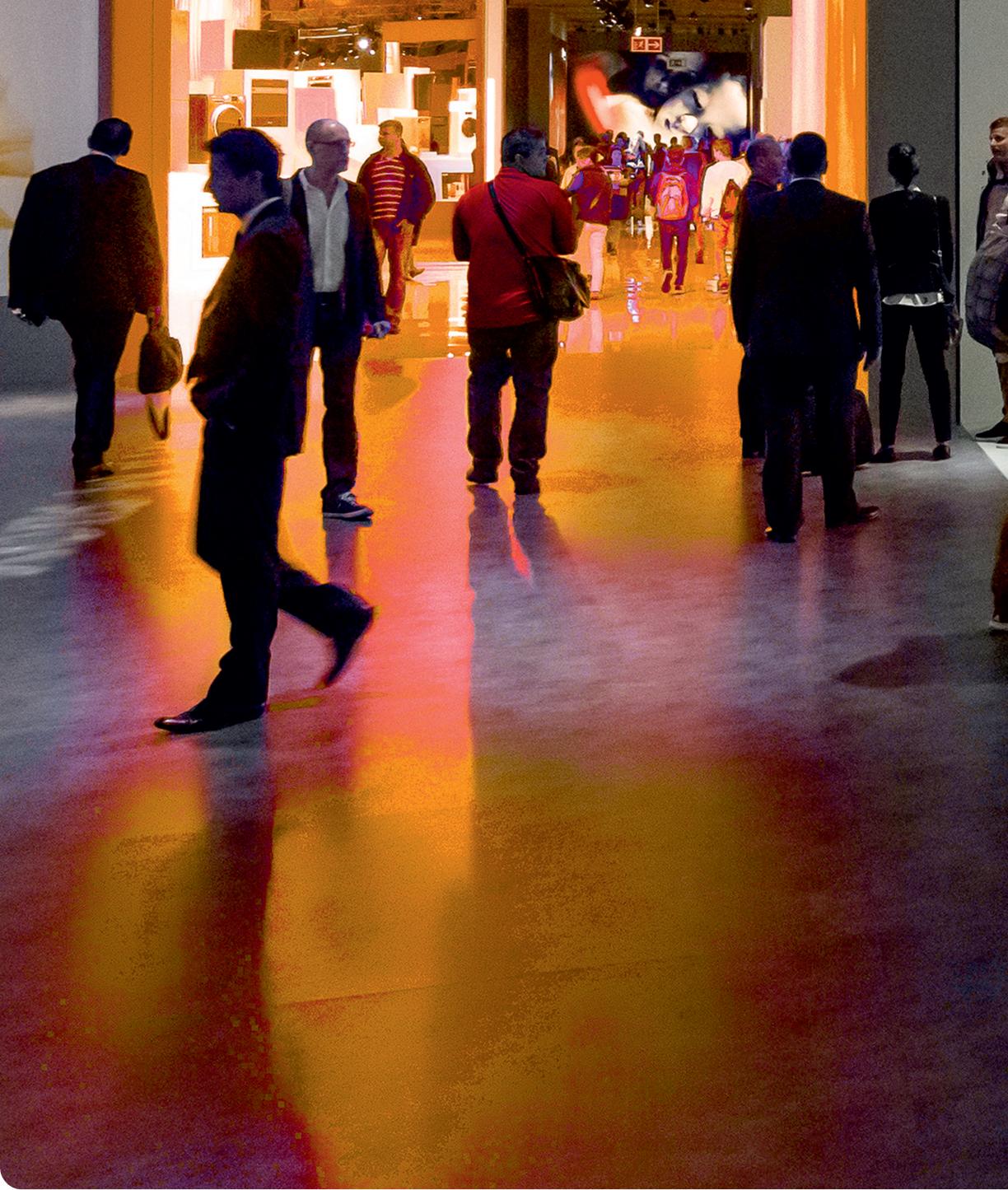

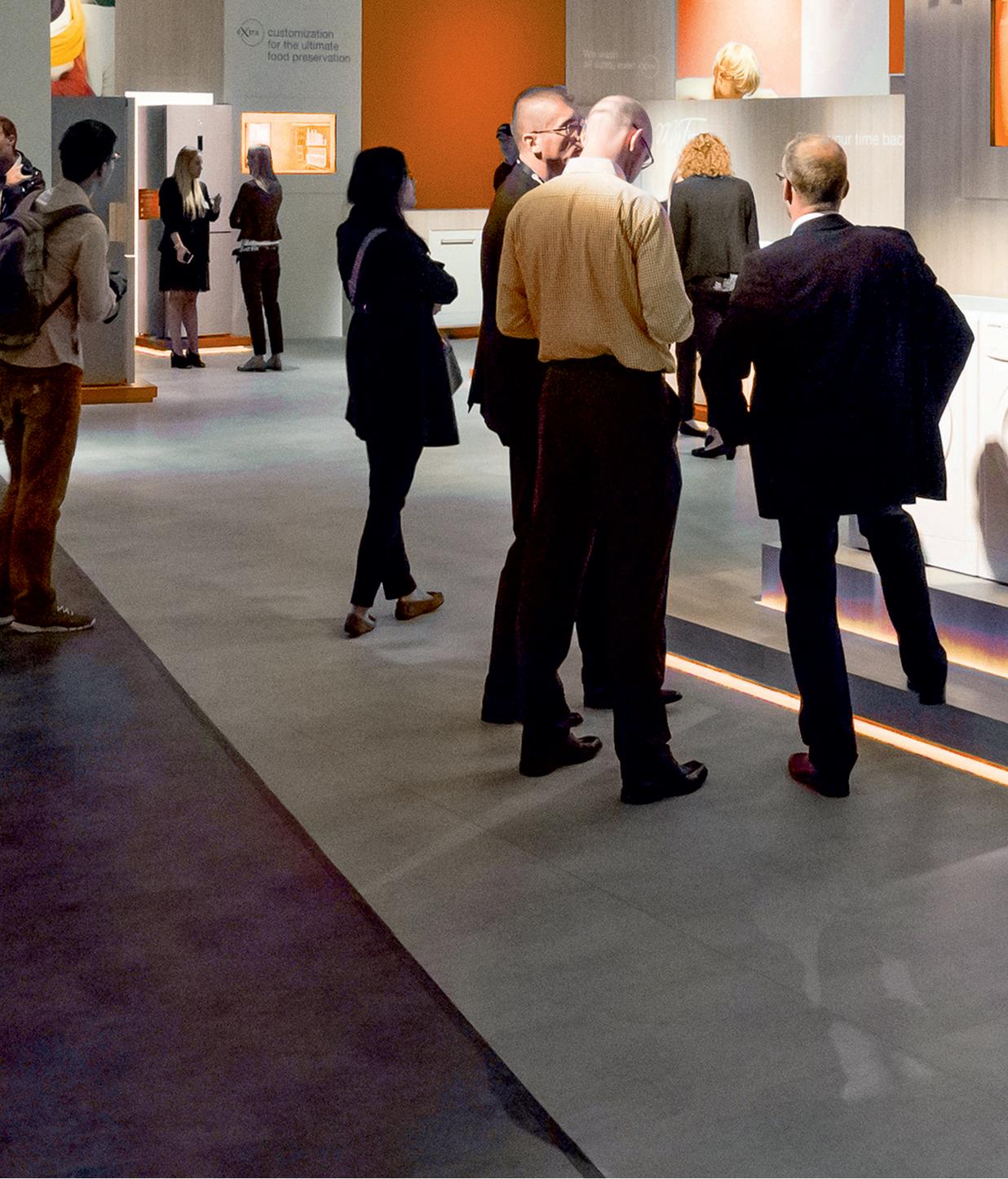
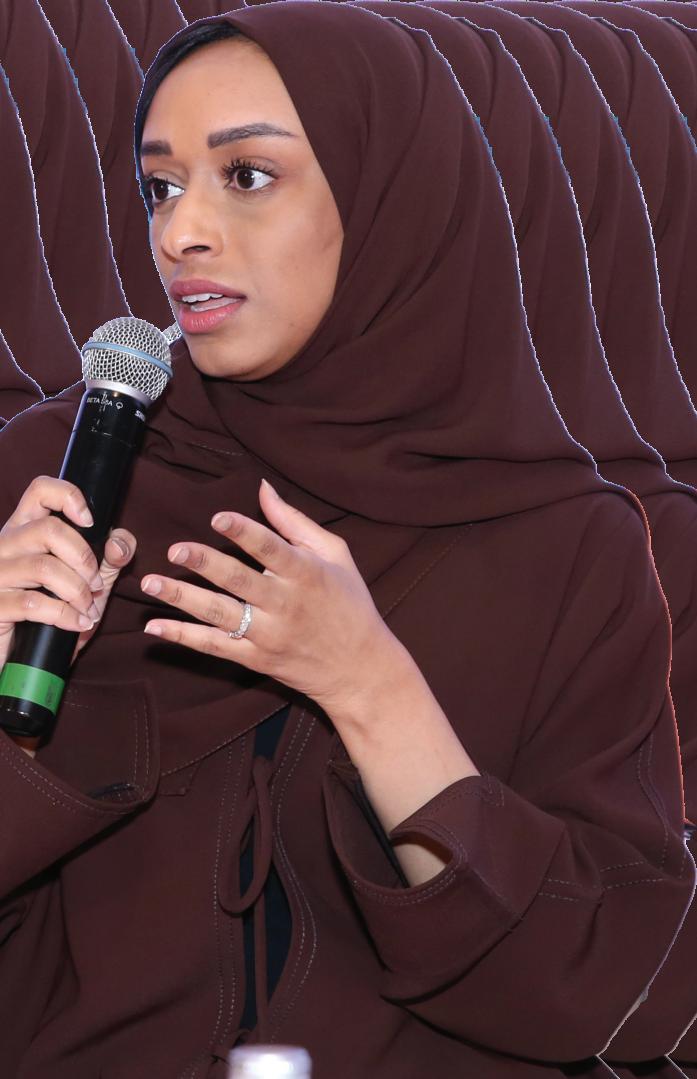
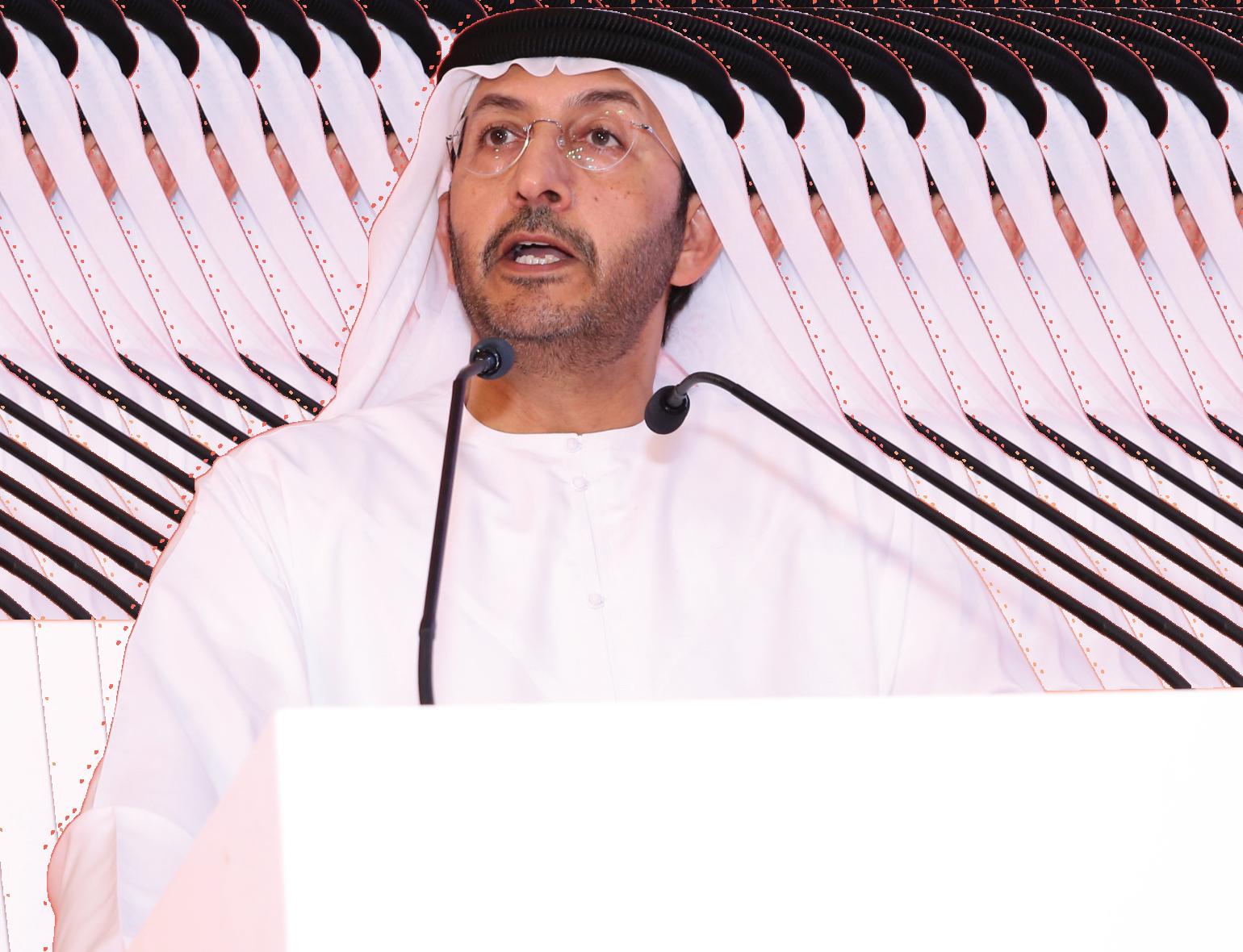
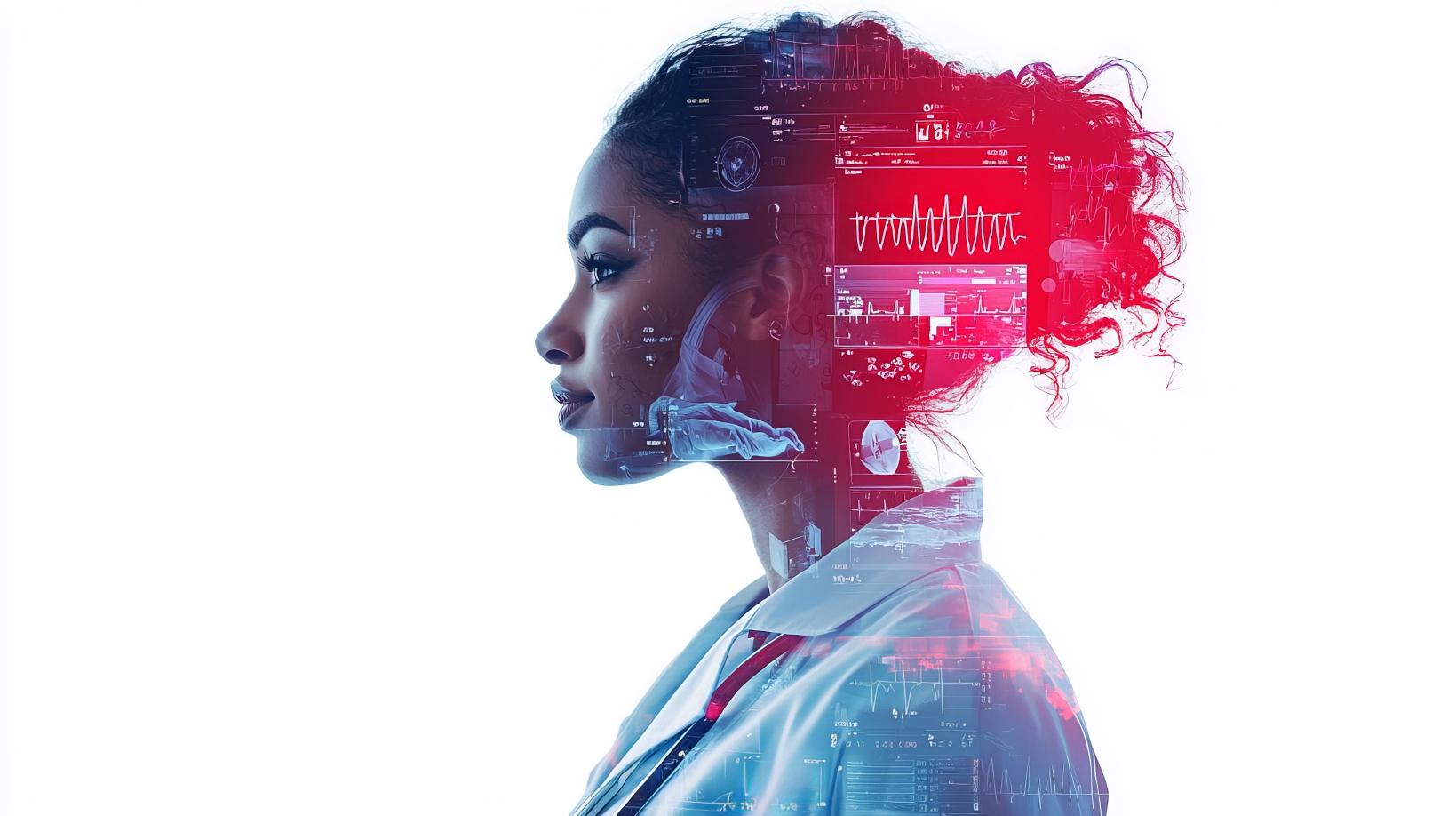
In a world where innovation is happening fast, AI in healthcareisarevolutionthatwillcreateanewplatform ofprovidingcareandreceivingitbypeople.Itisnotjust a question of automation- but of creating a future in which medicaltechnologyforeseesthefuture,optimizesroutes,and improves the end product in ways that were previously viewed as science fiction. In this volatile environment, a strategic approach that places foresight at the center of systems,predictivedesign,callsonhealthcaresystemstonot onlyactefficientlybutresponsively
Predictive design, in its essence, adopts AI as a real-time strategiccollaboratorinhealthcare.Ratherthansystemsthat receive information passively, predictive structures suggest systems that continuously read between the lines, interpret subtlesignals,movements,vitals,behavior,anddynamically change processes. Consider a diagnostic process that raises alarmpriortotheemergenceofsymptoms,oracarepathway that responds to the minor shifts in patient course
Medicaltechnologyinthisfuturevisionisactive,andlearner, and anticipator, and is engaged in co-steering care with providers,patients,andadministrators.
ThismethodredefinestheroleofAIinhealthcareasanactive orchestrationandnotasananalysis.Predictivemodelsdonot respond to stimuli, but act as guides to coordinate appointments,tests,orinterventionsatthebesttimepossible, before the problems become bigger These systems do not overrule, but enhance human judgment, providing opportunities for insight that can enhance decision-making andpersonalizeit.Theinteractionofpredictivesystemsand human professionals may become a characteristic feature of careinthefuture.
Atthesametime,theimplementationofmedicaltechnology basedonpredictiveAIshouldbesupportedbyaconsiderate design,takingintoaccountethicalandsocialnorms.Wecan identify general issues of transparency, interpretability, and equity, although not by name or organization. Predictive systemsshouldbedesignedsothattheyjustifyhowandwhy they make specific inferences. The meaning of a recommendation is only useful in a medical context when it can be made available in a manner that is liable to being trustedbyboththepatientsandclinicians.Thisopennesswill makeAIinhealthcarenotonlypowerfulbutalsoresponsible.
Equity,too,iscritical.Ascaredeliveryincreasinglyrelieson adaptivesystems,medicaltechnologyneedstobeavailableto avarietyofpopulations.Apredictiveinstrumentthatcanonly workwellinaspecificsettingorgroupinvalidatesthevalueof proactivehealth.Tomakeanymeaningfulcontributiontofair results,predictivesystemsneedtobedevelopedusingawide rangeofinputsandbeflexibletosuitdifferentsituations.By integratinginclusivityintopredictivedesign,AIinhealthcare willbenefitallinsteadofperpetuatingexistinginequalities.
Italsodependsonpowerfulintegrationasapartofthisfuture. Predictivemedicaltechnologyshouldalsointegratewiththe current infrastructure, such as how it is scheduled, communicated to patients, and coordinated care through the system,inawaythatiseasytouseandhasthesmallestimpact
on the current infrastructure. Health workers are already on their toes; there should be no issue in adding predictive abilities. Instead, AI in healthcare must seem like a natural continuationofthecurrentprocesses,complementingbutnot displacingthehumanexperience.
Notably, predictive design encourages ongoing learning. When a predictive alert is ignored or avoided, then the predictive system should recalibrate, as it can learn that its model is not relevant to clinicians or their practice. By constructing medical technology using this closed-loop feedback,itispossibletodevelopatechnologythatimproves andmaintainsrelevance.Withthisiterativedesign,theAIin healthcare increases in fidelity and alignment as time progresses.
Inordertoachievethis,thestakeholdersneedtoinvestinnot just algorithms, but in design thinking, dialogue, and infrastructure.Thetraining,workflowadaptation,andshared understandingofpredictiveintentwouldbeasimperativeas theestablishmentofthesystemsthemselves.Whenclinicians areconfidentinthemethodsusedtomakepredictionsandare ready to collaboratively work using those predictions,AI in healthcarebecomesanally,notamysteriousoracle.
Conclusively, predictive design of the future has attractive advantages: sooner intervention, streamlined care paths, customized care, and better resource management. These benefitsdependondesigndecisionsaswellastechnology.An anticipating system also needs to speak clearly, adjust, and serve inclusively The future of medical technology, in this sense, is in the development of the medical care system that wouldenvisionthenextstep,andcansteerustowarditwith development,fairness,andpurposefulcooperation.
